SUMMARY
This is AI generated summarization, which may have errors. For context, always refer to the full article.
- US contractor says he leaked intel on Prism
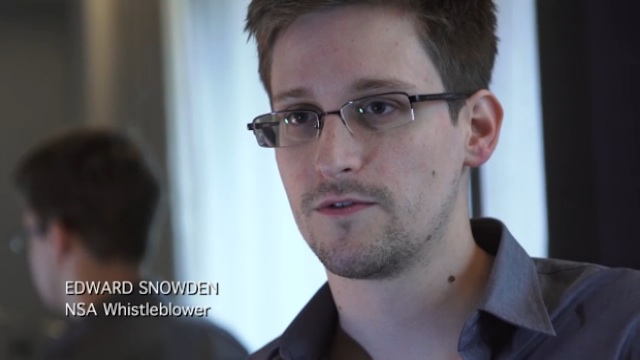
A 29-year-old government contractor Edward Snowden says he is the source of bombshell leaks of US monitoring of Internet users and phone records. Snowden, who worked at the National Security Agency for the past 4 years, says he can’t allow the US government to “destroy privacy, Internet freedom and basic liberties for people around the world with this massive surveillance machine.” The “surveillance machine” is known as PRISM, US National Security Agency program that can demand access to emails, online chats, pictures, files, videos and more uploaded by foreign users. Internet service providers deny they had given the government free access to customer data, unless compelled by law.
Director of National Intelligence James Clapper confirmed Saturday that the NSA uses the program to gather data trails left by targeted foreign citizens using the Internet outside the US. An expose by The Guardian says a separate program scoops up the telephone records of millions of Americans. Clapper admits data on US citizens might be “incidentally intercepted” in the course of targeting a foreign national, but said this would not normally be shared within the intelligence community unless it confirmed a threat. Clapper says disclosures caused “huge, grave damage” to US intelligence capabilities adding the the NSA has filed a crimes report. He said two plots have been foiled by these programs, both in 2009 — one a bomb attack on New York subways, and a plot linked to a conspirator in the 2008 Mumbai attacks. President Barack Obama defends the phone and Internet data trawls, saying America was “going to have to make some choices between balancing privacy and security to protect against terror.” But civil liberties and privacy groups have raised the alarm.
Read more on Rappler here and here.
Read more on The Wall Street Journal.
Read more on The New York Times.
Read more on The Washington Post. - Pugad Baboy cartoonist quits, artists oppose his suspension
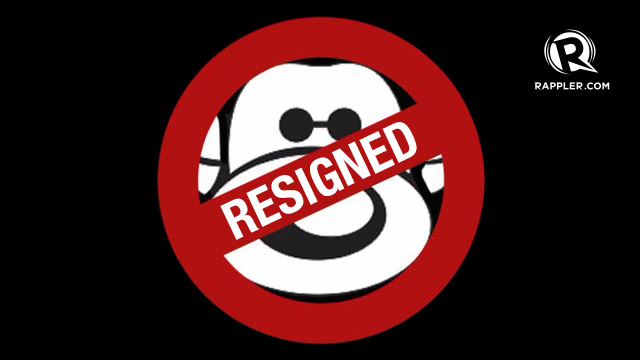
Pugad Baboy’s cartoonist Pol Medina Jr quits after he was suspended for a controversial joke about homosexuality in his popular comic strip published in the Philippine Daily Inquirer. In a letter to PDI editor-in-chief Letty Jimenez Magsanoc, Medina wrote, “Sorry I dishonored you. I resign.” His resignation ends a 25-year run of the Pugad Baboy (Nest of Pigs) strip in the paper, which has been offering stinging commentaries on life in the Philippines since 1988. Last week, the Inquirer apologized for an “offensive” June 4 cartoon that criticized the hypocrisy of homophobic Christians. The strip also suggested that all the “beautiful” students and some nuns at a leading Catholic school for girls were lesbians. The school, St. Scholastica’s College, threatened to sue the paper over the joke. The paper said the strip was rejected, but an apparent mix-up led to its publication. The Concerned Artists of the Philippines in a statement said it regretted Medina’s treatment by the Inquirer and warned it was a “threat to freedom of expression.”
Group spokesman Renan Ortiz said it could “set a dangerous precedent” for other publications. The group added Medina’s suspension over the joke “contradicts the PDI’s legacy of asserting the right to freedom of speech and expression.” - Leni Robredo disqualified because of foreign funding?
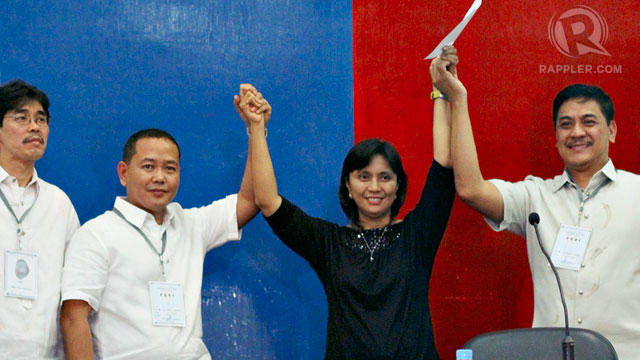
Leni Robredo, widow of late Interior Secretary Jesse Robredo, is accused of receiving contributions from foreign sources for her political campaign in the 2013 polls. These are possible grounds for her disqualification as Representative-elect of the 3rd District of Camarines Sur. Robredo’s opponent, Nelly Villafuerte, filed a complaint 10 days after the polls, accusing Robredo of soliciting donations from “at least seven American nationals and three American entities.” Section 96 of the Omnibus Election Code prohibits soliciting donations from foreign sources. In her complaint, Villafuerte cited as proof Robredo’s acknowledgement of her receipt of donations from the foreign individuals and entities. Villafuerte says Robredo’s letter also indicated the manner by which the foreign contributions could be sent. Part of Robredo’s letter mentions Loida Lewis, national chair of the US Pinoys for Good Governance. If found guilty, Robredo could face possible disqualification and imprisonment.
Read more on Rappler. - Koreas hold talks
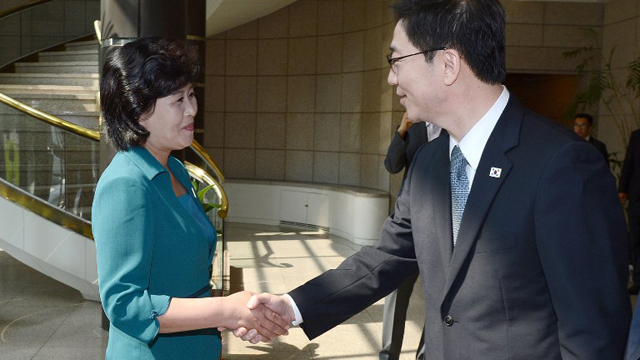
North and South Korea hold official talks Sunday — the first in more than two years — after months of military tensions and threats of nuclear war.
The working-level discussions are held in the border truce village of Panmunjom where the armistice ending the 1950-53 Korean War was signed. Seoul’s Unification Ministry spokesman Kim Hyung-Seok says of the morning session, “The overall atmosphere was… calm and the discussion proceeded with no major debate.” The two sides seek a framework for their first ministerial-level meeting since 2007 – tentatively scheduled in Seoul on Wednesday. The agenda will focus on restoring suspended commercial links, including the Kaesong joint industrial complex the North shut down in April. Sunday’s talks come after North Korea on Thursday proposed opening a dialogue. The South quickly responded and offered to hold cabinet minister-level talks in Seoul.
When these talks are convened, the most pressing issue will be the conditions for reopening the projects between the two countries.
South Korean President President Park Geun-hye earlier said her government wants to end a “vicious cycle” where the South appeases the North after its provocations. Her aides also say the South would not revive joint projects with the North “as if nothing had happened.”
Read more on Rappler.
Read more on The New York Times. - US, China closer on North Korea, climate change not cyberespionage
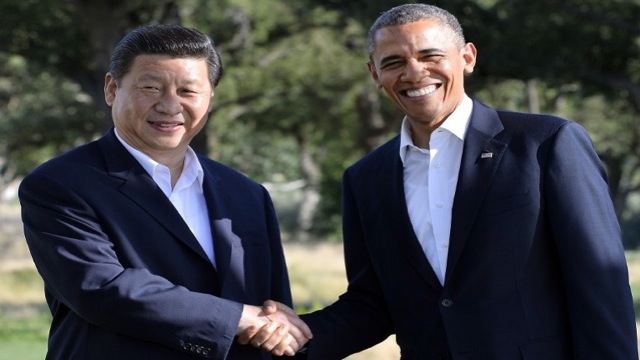
US President Barack Obama and Chinese President Xi Jinping end two days of talks in California with pledges of building a “new model of major country relationship,” but remain divided over the issue of cyberespionage. Senior officials from the meetings say Obama and Xi discussed climate change plans, how to deal with North Korea, and — the most contentious issue — cyberhacking charges. Although both leaders made no public statements on their talks, the White House announced the two countries agreed to discuss ways to reduce emissions of hydrofluorocarbons, used in refrigerants and insulating foams. The two leaders also hold a long discussion on North Korea.
Obama’s departing national security adviser Tom Donilon says the two agreed “neither country will accept North Korea as a nuclear-armed state” and both countries would work together to pressure Pyongyang to denuclearize. The issue that dominated Saturday’s talks were American accusations of an alleged Chinese Internet spying effort targeting American military and commercial secrets and intellectual property.
Obama urged “common rules of the road” to protect against hacking.
Xi responded by saying China was also “a victim of cyberattacks” and added he wanted “good-faith cooperation” to clear up “misgivings” by the United States about cybersecurity.
Read more on Rappler.
Read more on The New York Times. - Singaporeans protest ‘Free My Internet’
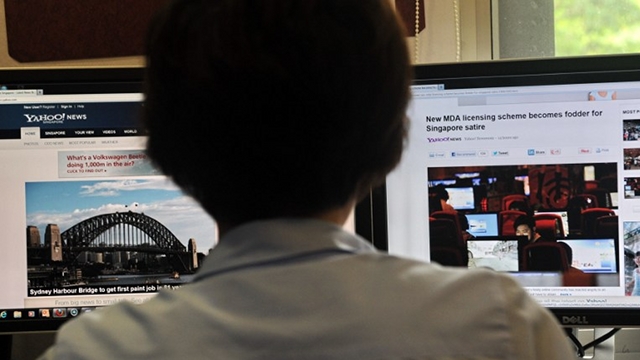
Over a thousand people gather Saturday at Hong Lim Park in Singapore to protest new rules requiring news websites to obtain annual licenses.
A group called “Free My Internet” calls on the city-state’s media regulator, the Media Development Authority, to drop the new rules, saying these curb citizens’ freedom of expression. On Friday, Human Rights Watch also urges Singapore to withdraw the rules, saying the rules will discourage independent reporting and curb free expression in online communities. Blogs focusing on social and political issues gained popularity as an alternative news source in Singapore, where mainstream media is widely seen as pro-government. Under the rules, websites with at least 50,000 unique visitors from Singapore every month that publish at least one local news article per week over a period of two months must obtain an annual license. These websites will have to remove “prohibited content” within 24 hours of being notified by the Media Development Authority. The MDA claims the new rules will not impinge on Internet freedom. Minister for Communications and Information Yaacob Ibrahim says the government would take a “light touch” approach to regulating the Internet.
Read more on Rappler.
Read more on The Wall Street Journal. - Prayers for Mandela: ‘It’s time to let him go.’
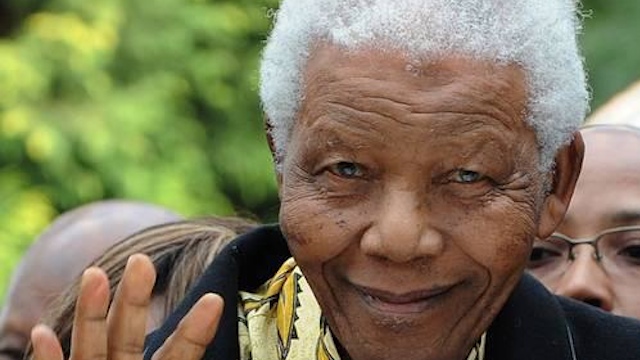
South Africans offer prayers as they wait Sunday for news of Nelson Mandela after the ailing 94-year-old icon spent a second night in hospital in a serious but stable condition. There have been no updates since he was was hospitalized early Saturday at a Pretoria hospital with a recurring lung infection. The Nobel peace laureate has been in and out of hospitals in recent years. On Sunday, the front page of South Africa’s Sunday Times read, “It’s time to let him go.” Mandela’s longtime friend Andrew Mlangeni tells the paper South Africans may have to say goodbye to the beloved icon. He says, “You have been coming to the hospital too many times. Quite clearly you are not well and there is a possibility you might not be well again.” Mlangeni adds, “Once the family releases him, the people of South Africa will follow. We will say thank you, God, you have given us this man, and we will release him too.”
Considered the founding father of South Africa’s democracy, Mandela became an icon while enduring 27 years in prison for fighting against apartheid, the country’s system of racial segregation. The Nobel peace laureate is revered as a symbol of forgiveness after embracing his former jailers following decades of apartheid rule. He was diagnosed with early-stage tuberculosis in 1988. Still a powerful symbol of peace and unity, Mandela has not been seen in public since the World Cup final in July 2010.
Read more on Rappler.
Read more on CNN. - Does Serendra use odorless LPG?

A government probe points to a gas leak as the cause of the deadly blast in Serendra on May 31 that killed 3 people. A source familiar with the probe tells Rappler the centralized gas used in Two Serendra is odorless. The source adds, the liquefied petroleum gas used by the building does not contain a chemical usually added to commercialized gas. The most commonly used chemical additive, mercaptan, is added to LPG to provide a distinctive smell so that the foul odor will alert residents in the event of a gas leak. Without mercaptan or an odorant, it is virtually impossible to detect gas leaks by smell. In its website, Bonifacio Gas Corp, Two Serendra’s supplier for its centralized piped-in gas system, says a special odor is added in LPG for easy detection in case of leaks. But Two Serendra residents Rappler spoke to did not report any gas odor before the blast. Another source who is part of the crime scene team said, however, it’s “not yet established” the LPG of Serendra has no smell. In a press conference Friday, Interior Secretary Mar Roxas said investigators are still unable to determine who will be held liable. The government has asked BGC to explain the blast. Gas in Serendra has been shut off since the explosion.
Read more on Rappler. - Historic 8th French Open for Nadal

Rafael Nadal becomes the first man to capture the same Grand Slam title eight times with his victory in the French Open final Sunday. Nadal claims his 12th major with a 6-3, 6-2, 6-3 win over his Spanish opponent David Ferrer, who was playing in his first Grand Slam final at the age of 31 and at the 42nd time of asking. The win is Nadal’s 59th out of 60 matches played in Paris. It is also his seventh title of 2013 after returning to the tour in February following a seven-month injury lay-off. Toni Nadal, his uncle and coach, said Sunday’s victory was memorable after the setbacks of the last year, which had seen his nephew miss the Olympics and the US and Australian Opens.
Read more on Rappler. - 67th Tony Awards

The musical “Kinky Boots” led the Tonys with six awards, including wins for best musical, best actor in a musical for Billy Porter and best original score for ‘80s rock star Cyndi Lauper. A revival of Stephen Schwartz’s musical Pippin picked up four Tonys. Tracy Letts of “Who’s Afraid of Virginia Woolf” wins best actor in a play which include Tom Hanks in the list of nominees. Cicely Tyson of “The Trip to Bountiful” wins best actress in a play, her first Tony. Patina Miller of “Pippin” wins best actress in a musical. “Who’s Afraid of Virginia Woolf?” wins best revival of a play. The 2013 awards night held at Radio City Music Hall in New York City generates buzz with its host, “How I Met Your Mother” star Neil Patrick Harris who has also made a name for himself in theater. The 3-hour-long ceremony is marked by performances from this year’s nominees including “Annie,” “Bring It On: The Musical,” “Kinky Boots,” “Matilda The Musical,” “Rodgers + Hammerstein’s Cinderella” and more.
Read more on USA Today.
See hightlights on Rappler’s live blog here.
Add a comment
How does this make you feel?
There are no comments yet. Add your comment to start the conversation.